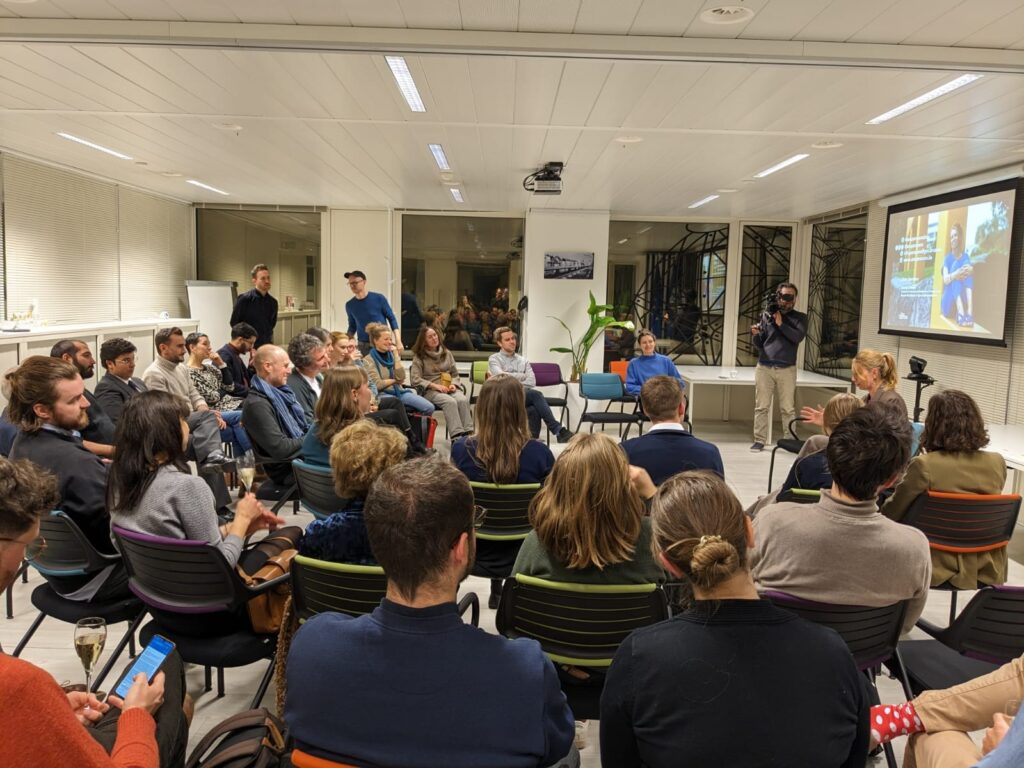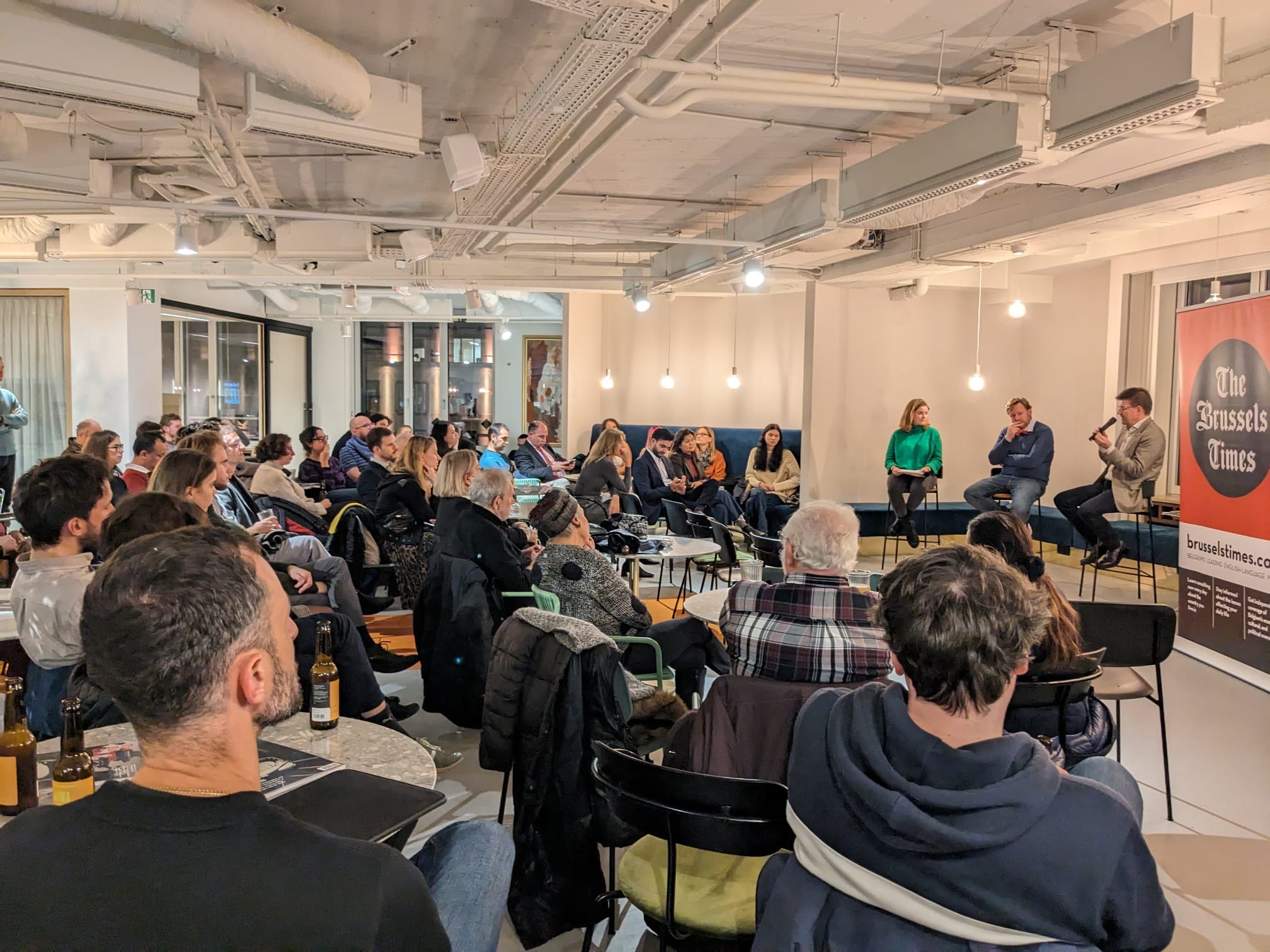As people working in and around the international institutions, those in the so-called Eurobubble often find themselves caught up in the whirlwind of their immediate community - a busy bubble within the vibrant, multifaceted city of Brussels. Yet, how often do we step beyond this comfort zone to truly engage with the city that we call home?
For the past year, as the NGO Restless Brussels, we've undertaken a journey to bridge this gap by running events to help people learn more about the city they live in. These have mostly been in English and seek to complement the plethora of existing events in French, Flemish and other languages.
After more than 20 events – with speakers including activists, journalists, politicians and civil servants – for over 1,000 people across nine communes, here are a few lessons we've learned about Brussels politics and civic life.
- Now is the time to get involved
The best time to start engaging with the city's fabric is the moment you arrive. The next best time is today. There are many ways to connect: joining clubs, reading the media, supporting causes, and making new friends who share your interest in connecting with the city.
The disconnect we have come to accept from Brussels is not normal. We’ve all felt something’s missing. Humans are social creatures: we need neighbours to call on, representatives to write to, friends to discuss local issues with and allies to help shape how our city grows.
If you’re not sure what to start with, a very basic building block of this is registering to vote in the municipal elections and forming opinions before October 2024. By deciding to vote, you decide to become more curious about your neighbourhood, and to learn about what works, what doesn’t and who is shaping it.
- The Brussels political landscape is like no other
Brussels politics is a unique landscape, characterised by its diversity and complexity. There are conservatives, liberals, greens, socialists and communists - and within this diverse group, there are strange alliances and unexpected bedfellows. There is a Franco-Flemish divide, which doesn't mean much to internationals on the surface, but it tends to influence the way each group thinks about politics and policy.
The best way to tackle this is to start by deciding what you want for your neighbourhood. From there, investigate who supports those positions and their track record in delivering on them. It's vital to speak with locals who have followed this for years and ask their opinions. It’s also helpful (not to mention fun) to bring people with you - create your own networks, learn and discuss these issues with your friends.
- Get involved in civil society
Civil society is incredibly important in Brussels. It fills gaps that the government can't - or won't, depending on how you look at it. In the institutional lasagne of Brussels, it’s not unusual to find a lack of clarity on responsibilities, and civil society may have to step in to fill a gap. Whether it’s supporting the homeless, civic clean-up initiatives or helping integrate refugees.
Take Restless Brussels for example. Because voting is technically mandatory once registered, there is no culture of running "get out the vote" campaigns. However, the needs of communities are different: if you've landed in Brussels from abroad, you need to register to vote. If you’re expected to do that, you need help learning about Brussels politics, encouragement to get involved, and support in forming opinions. We stepped in to try to fill this gap.

A Restless Brussels session
Getting involved in civil society is one of the best ways of integrating into Brussels city life - not to mention that it’s fun, satisfying and a great way to make friends.
- Public debates are indirect
At first glance, public debates in Brussels can be bewildering. It starts to make more sense when you see that many of the policy conversations are highly interlinked with each other. For example, the battle over mobility in Brussels confuses many people new to the car-choked capital. However, when you understand that in some quarters it has become a proxy for discussions about gentrification and housing, while in others, politicians use it as a tool to drum up reactionary votes, you can better understand where the controversy stems from.
Recognising these contexts helps us approach these debates with empathy and a broader perspective. It's about seeing beyond immediate interests to the values and histories that shape our communities' responses to change.
- Brussels is a city of bubbles
Acknowledging our bubbles is the first step towards meaningful integration. The second step is recognising everyone else here lives in a bubble too. Brussels is a mosaic of communities, each with its own perspectives and experiences. We often chastise ourselves (and are occasionally chastised) as internationals around the institutions for being in a bubble.
We are all embedded in own little communities, whether we are of Moroccan origin or a French immigrant, a Dansaertvlamingen or have Congolese roots, working in an EU institution or a Belgian trade union. When you realise this, the only sin in Brussels is not being curious about other bubbles. By engaging openly and respectfully with different parts of the city, we enrich our own lives and contribute to a more cohesive urban community.
- Voting is the basic building block of participation
Voting is the cornerstone of our engagement with the city's civic life. It’s not just a way of making our voice heard, but it shows our commitment to the place we’ve made our home - and at the moment only 17% of internationals eligible to vote do so, although we make up a third of the city.
For internationals living in Brussels, our voice in the city's governance is limited, confined only to the municipal level and not to regional elections, which take place in June. While this may feel unfair and illogical, it makes it more important to exercise our right to vote wherever possible - and many critical responsibilities and decisions about our daily lives are made at the municipal level.
Registering to vote and participating in these elections is not just a right. It's a duty for those of us who wish to be genuine stakeholders in Brussels' future. By voting, we take an important step towards integration, signalling our readiness to be part of the rich dialogue and diverse communities that shape Brussels.

